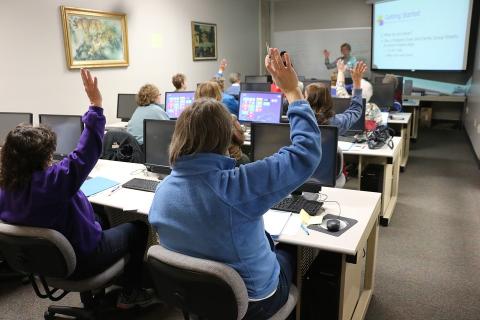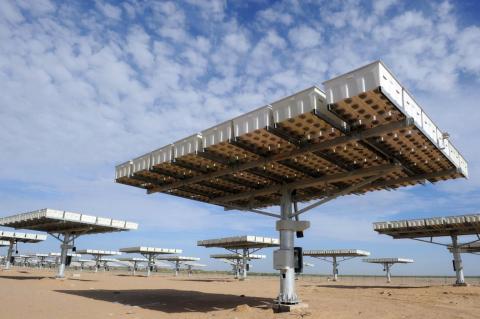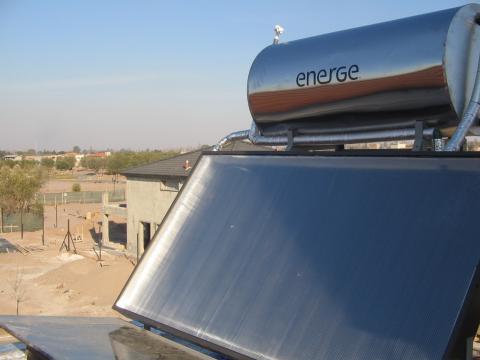PLANET Training course modules
If you are interested in taking the course or even just a part of it, please contact our training centers!
| Module name | Photo | Description | MORE INFORMATION |
|---|---|---|---|
Biomass training course |
|
The Biomass training course consists of a technical part, operational management, raw material, economy, law, legal and safety issues and a site visit. The training content provides the student with a comprehensive, practice-oriented knowledge of the construction and operation of biomass local heating plants, starting with the basics of biomass heating plants, suitable ranges of raw materials and their extraction, the technical structure and their function, the operational management, the required contracts, safety and hazard information and compliance with the legal regulations. With the knowledge of the course, the student gets the ability to influence the design of a new biomass heating plant according to the present framework to allow a sustainable economic operation of the plant. This module has a duration of 8 days. |
DOWNLOAD THE PDF WITH OUTLINE
CONTACT EMAIL |
ICT Training Course |
 |
Topics covered within the ICT module will allow the learner to proficiently use computers and digital devices, internet networks, the main application programs, and IT communication tools. The main aim is to respond to the changing conditions of the technological and IT reality and the way in which we interact with it. The extraordinary diffusion of mobile devices, the possibility of using remote applications and even storing their data on the network, the "social" use of technologies have changed the connotations of the main market players and their way of competing. Examples will be focused on a calculation related to RES production and use. This module has a duration of 9 days. |
DOWNLOAD THE PDF WITH OUTLINE
CONTACT EMAIL |
Solar photovoltaic training course |
 |
The Solar Photovoltaic training course consists of 6 days of training, both in-class, online and on-field (with a site visit of an operating power plant). The module starts with an introductory chapter which should allow the students to understand the applications of solar energy as well as the roles of all actors involved in a solar plant project. The module continues with a presentation of the technical equipment of a power plant and the influence of the local law and regulation on the applications. The students will then learn the basic rules of the design of a power plant. Day 4 consists of a site visit where students will discover an operating plant and how the information learned in the previous days are applied on-field. They will also apprehend safety and health regulation as well as the steps of Operations and Maintenance. Day 5 presents the method for evaluation of the economical benefits of a power plant and, finally, Day 6 is a presentation of how to run a power plant through troubleshooting, maintenance, and recycling phases. With the knowledge of the course, the student gets the ability to review the design of a solar power plant according to the present framework to allow a sustainable economical operation of the plant. This module have a duration of 6 days. |
DOWNLOAD THE PDF WITH OUTLINE
CONTACT EMAIL |
Solar Thermal training course |
 |
The Solar Thermal training course consists of 6 days of training, both in-class, online and on-field (with a site visit of an operating power plant). The module starts with an introductory chapter which should allow the students to understand the applications of solar energy as well as the roles of all actors involved in a solar plant project. The module continues with a presentation of the technical equipment of a power plant and the influence of the local law and regulation on the applications. The students will then learn the basic rules of the design of a power plant. Day 4 consists of a site visit where students will discover an operating plant and how the information learned in the previous days are applied on-field. They will also apprehend safety and health regulation as well as the steps of Operations and Maintenance. Day 5 presents the method for evaluation of the economical benefits of a power plant and, finally, Day 6 is a presentation of how to run a power plant through troubleshooting, maintenance, and recycling phases. With the knowledge of the course, the student gets the ability to review the design of a solar power plant according to the present framework to allow a sustainable economical operation of the plant. This module has a duration of 6 days |
DOWNLOAD THE PDF WITH OUTLINE
CONTACT EMAIL |
Biogas training course |
|
The biogas training course consists of the microbiology of digestion, technical plant lay-out, (operational) management of the biogas plant, business models, safety, environment, and logistics. Site visits are combined with (group) assignments to apply the learned skills and knowledge. The training content provides the student with hands-on knowledge of the basic plant design, operational management, safety and hazard information and compliance with the legal regulations. This module focuses on small scale digesters, which you typically find among the agricultural premises around Europe. Small-scale digestion has many advantages. Basically it produces bio-energy out of manure and feeds leftovers. The revenues of this give the farmers more income. Besides this manure digestion also reduces the emission of methane and nitrogen from the manure pits. Because of the harmfulness of methane as a greenhouse gas, this is a very huge, but still not valued, side-effect. With the knowledge of the course, the student gets the ability to influence the design of a new biogas plant and is able to ensure technical, biological, sustainable and economical operation of the plant. This module has a duration of 10 days |
DOWNLOAD THE PDF WITH OUTLINE
CONTACT EMAIL |
Introduction module (module 0) |
 |
The introduction module gives an introduction to the PLANET training course and an overview of the following topics: - Job Guidance: Skills assessment and coaching - Sustainable development: Anthropic impact, Global warming, Oil reserve, and natural resources, EU Energy Market; Specific issues: Benefits and impacts of energy production from renewable resources: biomass, Biogas, Solar. - Equal opportunities: Discrimination, Interculturalism, Gender, Empowerment, Harassment - Occupational Safety and Health: General Education (EU Framework, General principles, National Legislation, Risk Assessment, Prevention and Protection, Safety Organization, Signs) Specific Education. |
DOWNLOAD THE PDF WITH OUTLINE
CONTACT EMAIL |
